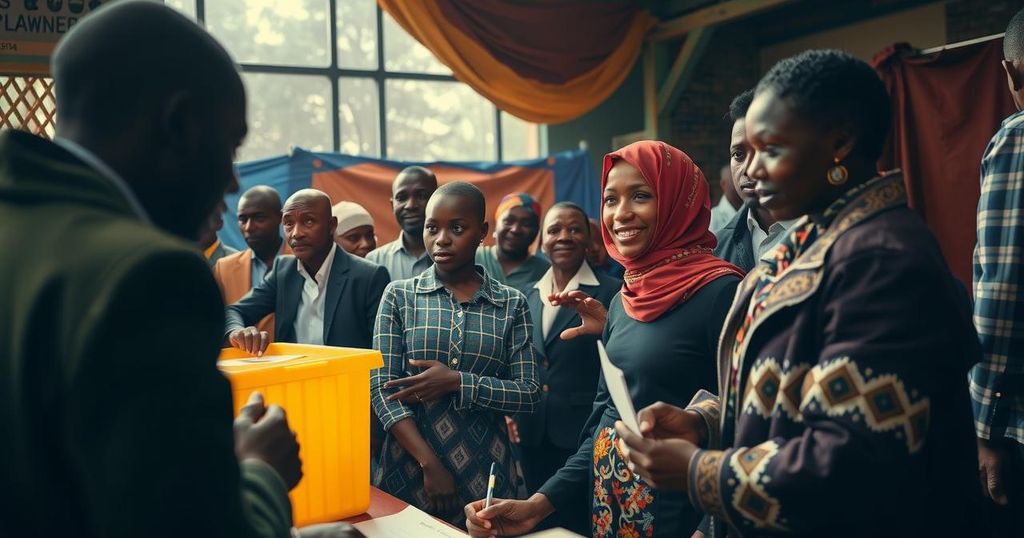Botswana’s election is critical as voters decide whether to retain the Botswana Democratic Party (BDP) in power for a further term after 58 years. President Mokgweetsi Masisi faces economic challenges, including rising unemployment and a need for policy changes, while three candidates from opposition parties seek to unseat him. The election could redefine the political landscape of the nation.
The election in Botswana has opened the floor for voters to determine the fate of the Botswana Democratic Party (BDP), which has remained the ruling party since the nation gained independence in 1966. President Mokgweetsi Masisi, currently in power, is campaigning for re-election amid economic challenges that have emerged primarily due to a decline in diamond demand, a cornerstone of Botswana’s economy. With unemployment rates climbing as high as 27%, particularly among the youth, the BDP acknowledges the need for policy reforms. For the upcoming term, Masisi’s leadership hinges not only on addressing economic issues but also on the party’s ability to diversify revenue sources away from diamonds, which constitute over 80% of exports and a significant portion of GDP. Furthermore, the political landscape features challenges from three contenders: Duma Boko of the Umbrella for Democratic Change party, Dumelang Saleshando from the Botswana Congress Party, and Mephato Reatile representing the Botswana Patriotic Front. Historically, the BDP has faced little opposition, yet the current economic instability signals a narrowing gap with rival parties. Stakeholders eagerly await the election outcomes to discern whether the BDP can secure another term in power or if a shift in governance will occur.
Botswana is celebrated as one of Africa’s stable democracies, earning praise for its governance and standards of living. The BDP has led the country for 58 years, attributed largely to its foundational role in the post-independence era. However, as the global economy has shifted, the BDP faces scrutiny over its management of economic resources, especially in relation to diamond mining, which has seen a substantial decrease in demand. This economic backdrop is crucial as the electorate weighs their options in an evolving political context.
As Botswana approaches a pivotal election, significant decisions lie ahead that will shape its political and economic future. The BDP, under Mokgweetsi Masisi, seeks to affirm its long-standing governance amidst rising economic challenges. With the political landscape growing more complex, the outcome of the election may signal a transformative period for the nation, potentially marking the end of a longstanding era led by the BDP.
Original Source: apnews.com






